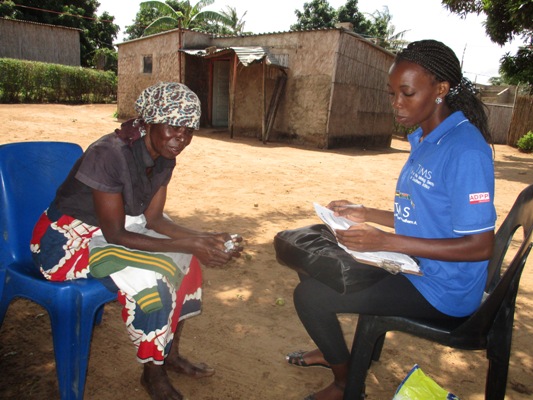- About
- Topics
- Picks
- Audio
- Story
- In-Depth
- Opinion
- News
- Donate
-
Signup for our newsletterOur Editors' Best Picks.Send
Read, Debate: Engage.
| topic: | Health and Sanitation |
|---|---|
| located: | Russia |
| editor: | Andrew Getto |
As the 1st of December commemorates World AIDS Day, we’ll take a look at the curious case of Russia, the sole European country among the world leaders in HIV infections. In recent years, the government has reluctantly admitted to an HIV epidemic, but it continues to reject best practices and seems to not have any plans to subvert the trend.
The statistics are rather horrifying. According to official data, 1.1 million Russians are currently living with HIV, and experts place the real estimate higher, at up to 1.5 million. The rates of infection are 10 times larger than the European average. Russia is the only country outside of Africa and the Caribbean to be in the top 40 countries by adult HIV prevalence.
Some Siberian regions are almost on par with Sub-Saharan Africa when it comes to new cases. In 2019, there were 206 cases per 100,000 people in Kemerovo, compared to 283 in Zimbabwe. And there are old cases, as well: overall, almost one in 50 residents of the Kemerovo and Irkutsk regions are HIV-positive. Effectively, there is an HIV-infected person on any public bus.
The high number of infections in the relatively underpopulated Siberia has a geographical explanation. Southern Siberia borders Kazakhstan, the main transit route for Afghan heroin that flooded Russia in the 1990s and launched the epidemic. For two decades, the injection of drugs with contaminated needles was the main cause of new HIV cases. But today, heroin’s popularity has receded, and less than a third of new cases are linked with drug use. From the half of the cases whose cause of infection is identified, 65 percent are from sexual contacts with the opposite sex.
To reiterate: today, for heterosexual people who are not active drug users, having unprotected sexual intercourse is the main reason for the ongoing epidemic. This has another explanation: sex education in Russia is almost nonexistent (I don’t remember the word “sex” pronounced once in my school, nor did anyone distribute condoms). Raising awareness about safe sex and promoting HIV testing is not a priority for the Russian government - because talking about HIV openly is highly stigmatised.
En masse, most people in Russia, including government officials, pretend that HIV concerns only select groups of people: drug users, sex workers and homosexual men. And the Russian state is notorious for treating the vulnerable with disgust. There is a designated law targeting LGBTQ+ people, and there is no prospect of legalising prostitution or drug use. The government has put the foreign agent tag on dozens of NGOs that hand out sterilised syringes to drug addicts, and opposes any advancements, like opioid replacement therapy, at the highest level.
“We don’t treat drug addicts with drugs,” Russian diplomat Anna Nazarova said at the UN. “In two years, all those present will watch Russia completely defeat the AIDS epidemic with its own methods.” This was stated in 2017.
The Russian government should treat the problem seriously and adopt widespread testing and sexual education programs, as well as progressive policies to help marginalised communities. Only then will there be a chance of reversing the shameful scale of the HIV and AIDS epidemic.
Photo by Testalize.me

